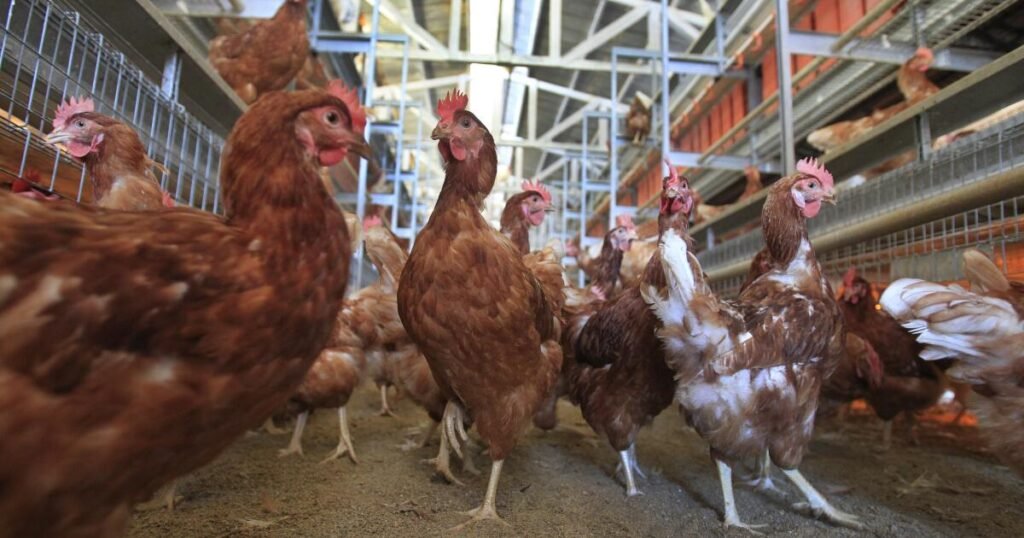The Trump administration has initiated legal action against California regarding animal welfare regulations that voters approved. These laws prohibit the confinement of chickens, pigs, and calves in small cages, and the administration asserts that this has led to increased egg prices and infringes on federal agricultural laws.
A statement from a lawyer involved in the lawsuit claimed, “California has contributed to a historic rise in egg prices by imposing unnecessary deficits on egg production.” The lawsuit was filed on Wednesday in the U.S. District Court in Los Angeles.
California’s Governor Gavin Newsom and Attorney General Rob Bonta have pledged to uphold state law, with Bonta remarking, “Pointing fingers won’t change the fact that the president’s economic policy is destructive. He will see it in court.”
Voters approved California’s Animal Welfare Act, known as Proposition 12, in 2018, and the U.S. Supreme Court upheld it earlier this year.
Judge Neil Gorsuch, a Trump appointee, noted in a ruling that in a functioning democracy, such policy decisions typically rest with the electorate and their representatives. He acknowledged that while state laws might have economic impacts in other areas, they would only violate the constitution if intended to obstruct interstate commerce.
The Justice Department contends that California’s laws supersede federal regulations, including the Egg Products Inspection Act, arguing that no state can set different standards for aspects like egg production that conflict with federal guidelines.
The National Council of Pork Producers and others have repeatedly challenged this law. Recently, the Supreme Court declined to hear a petition from the Iowa Pork Producers Council.
In its lawsuit, the Justice Department argued that California’s egg standards “do not advance consumer welfare” and lack backing from peer-reviewed scientific research indicating they would reduce foodborne illnesses.
Egg prices saw a significant rise shortly after Trump took office, with experts attributing the surge mainly to an H5N1 bird flu outbreak that led to the euthanization of millions of egg-laying chickens to control the spread.
Recently, prices have stabilized as the outbreaks have diminished. In the past month, only one case of infection among commercial birds was reported in Pennsylvania, and those birds were not egg layers.
In February, USDA Secretary Brooke Rollins hinted in an article that the Trump administration planned to challenge the law.
California’s egg producers have previously resisted modifications to these laws. Bill Matos, who leads the California Poultry Federation, expressed in a February interview that egg farmers in the state have already invested millions in upgrading their facilities. He cautioned that rolling back the law could severely impact both California poultry farmers and egg producers servicing the state.
Animal welfare advocates criticize the lawsuit as shortsighted, claiming it may endanger California’s egg industry. Wayne Pasel, president of Animal Wellness Action and the Center for Humanitarian Economics, described the legal action as “illegal” and detrimental, arguing that California egg farmers are still recovering from the avian flu, and a successful lawsuit could disrupt a fragile supply chain.







